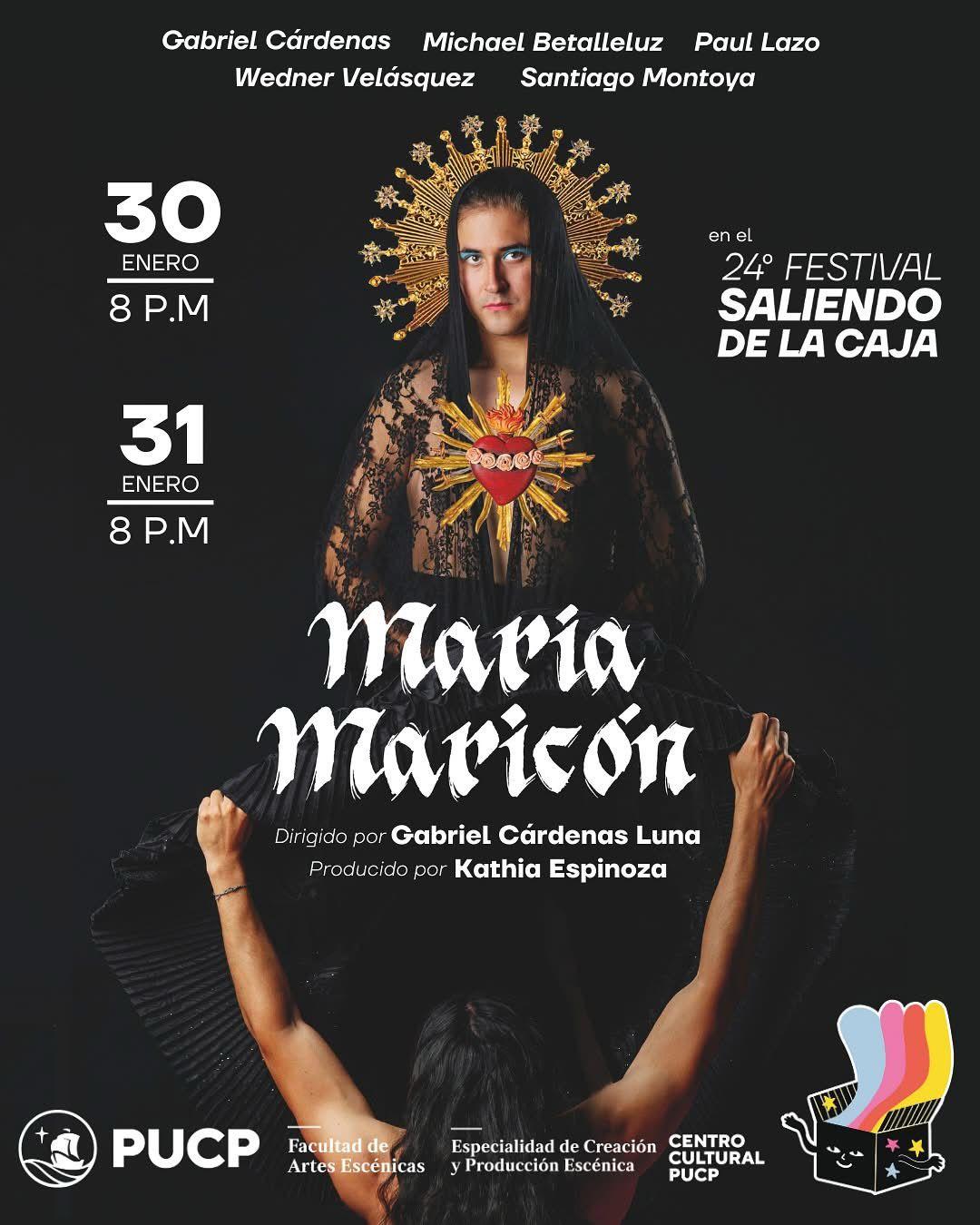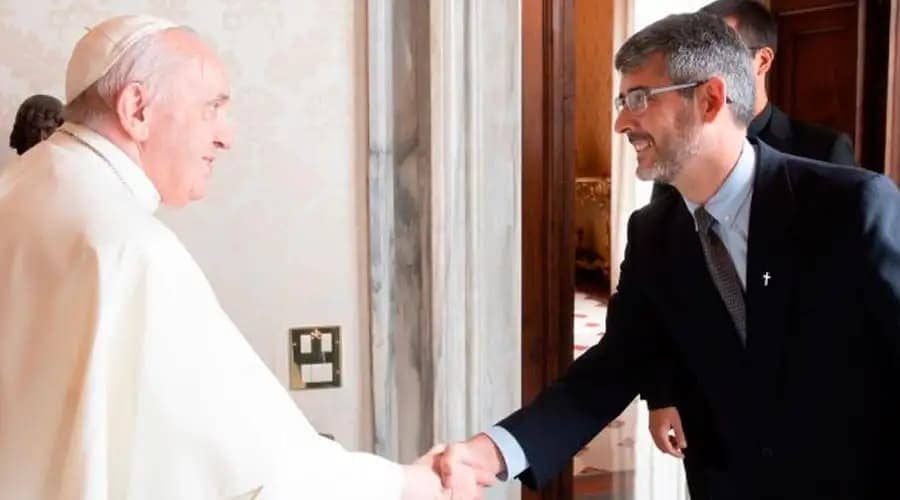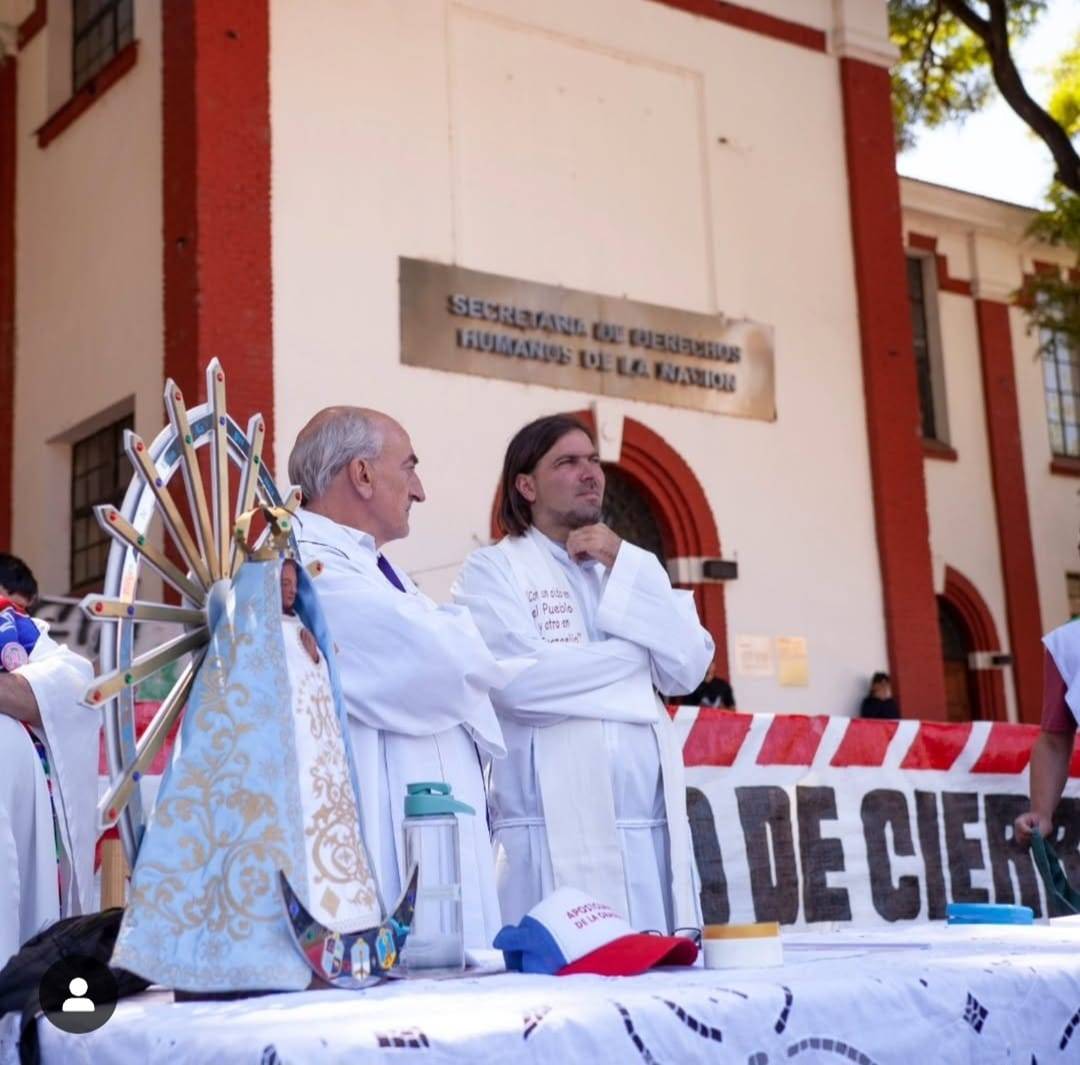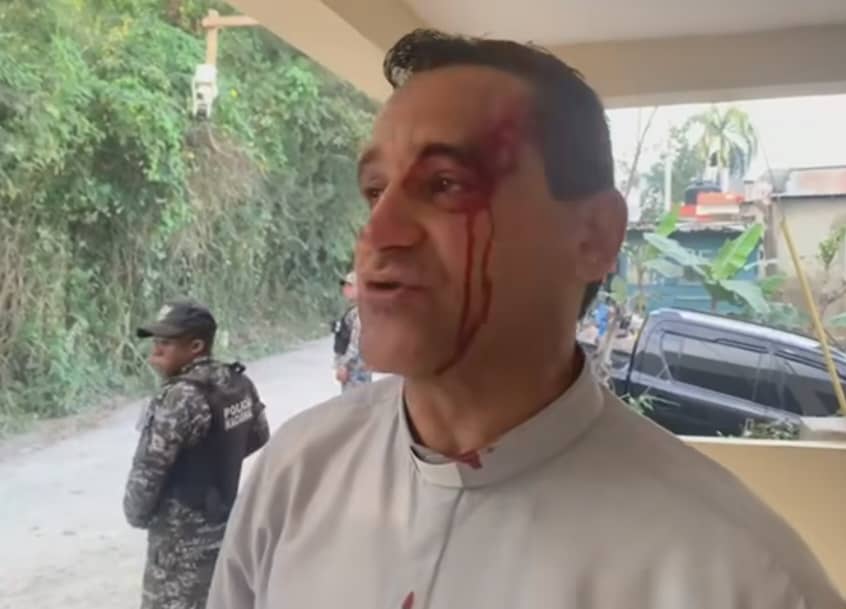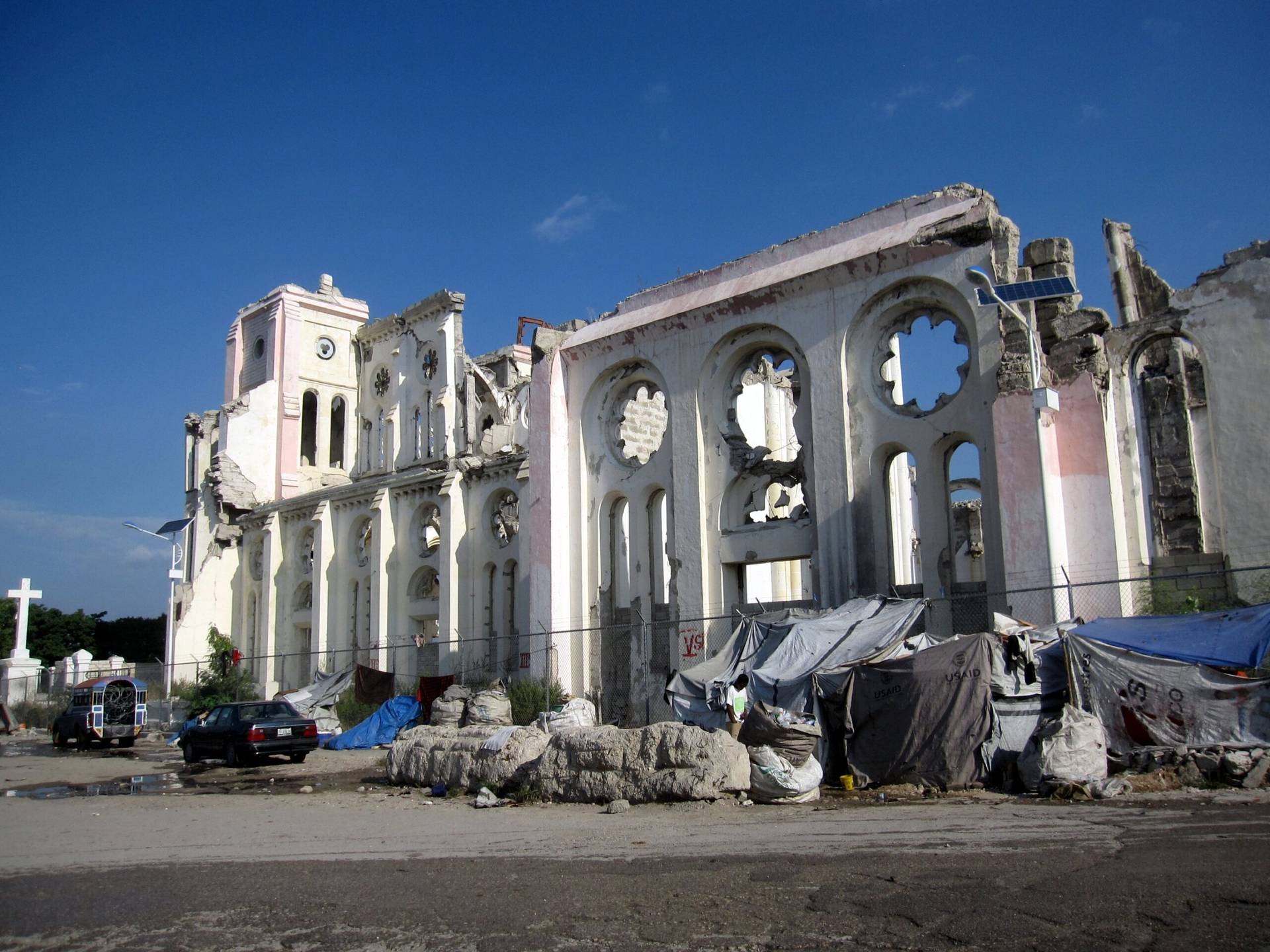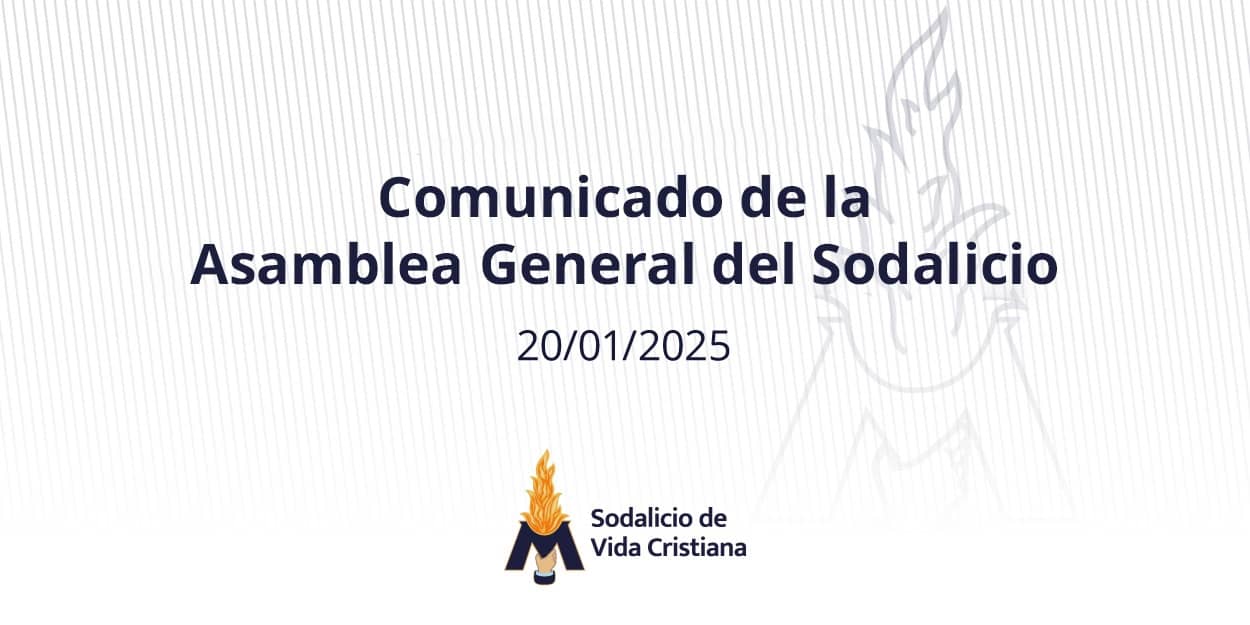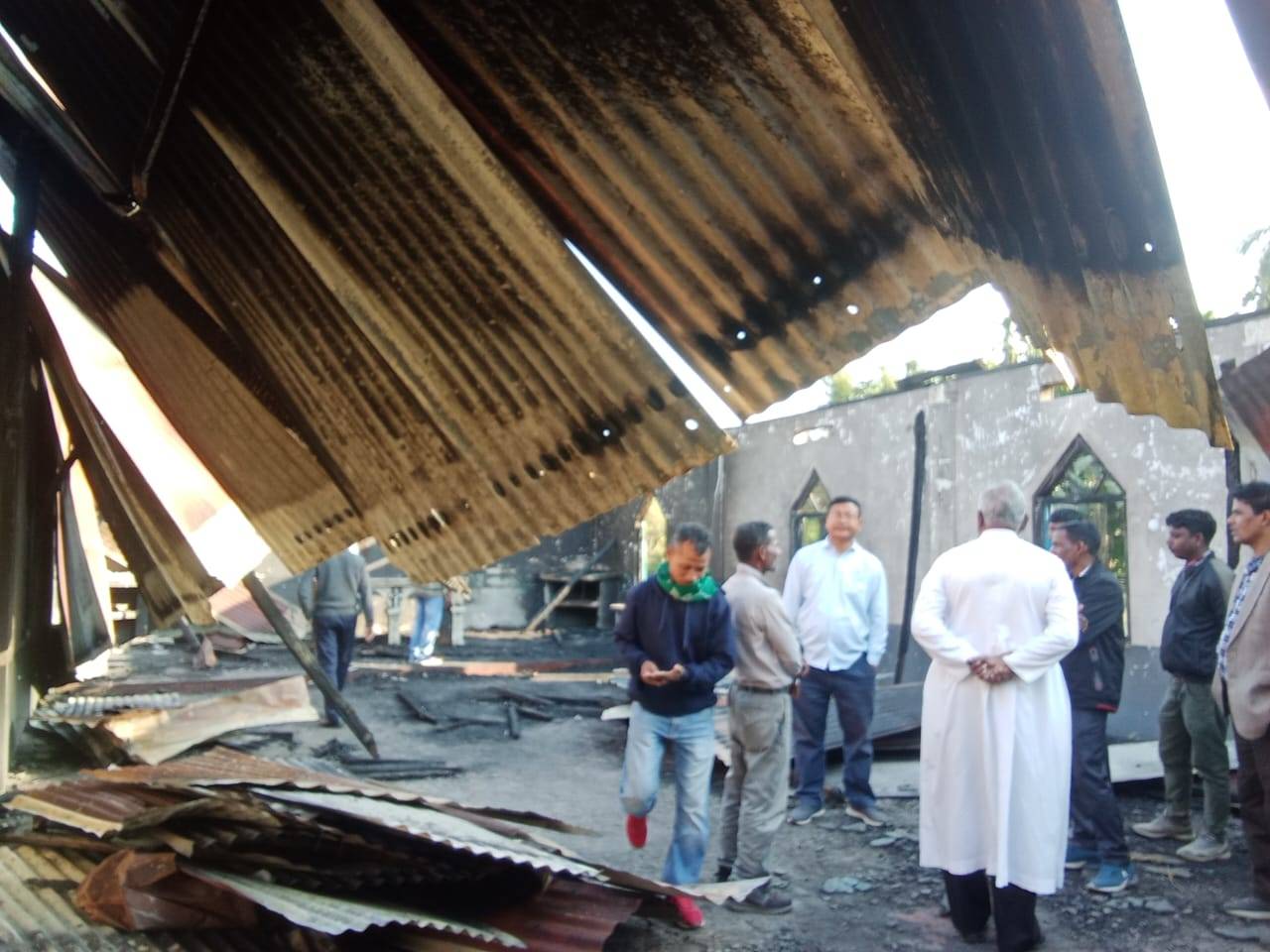SÃO PAULO, Brazil – A poster of a theater play to be presented by students of a Catholic university in Lima, which combines religious symbols with the figure of a man wearing female clothes, is spurring outrage in Peru.
The banner for a piece titled María Maricón (something like “Faggot Mary” in Spanish) shows a halo and a blessed heart associated with a man wearing a feminine veil and makeup.
The play is part of a festival promoted by the Pontifical Catholic University of Peru’s (PUCP) College of Theater and was scheduled to be performed on Jan. 30-31.
It’s described as a “testimonial theatrical work” that investigates the “conflict between religion and gender through the deconstruction of several Catholic virgins and saints.” It uses folkloric dances, chants, and religious and popular texts, besides “the life of the main performer, who identifies as homosexual.”
A picture of the poster was sent last week to Carlos Waite, who leads the Men’s Rosary group in Peru, and he posted it on X with fierce criticism. It soon went viral.
“Every Catholic in the country saw it as a blasphemy. It insulted millions,” Waite told Crux.
On the following day, Waite led a gathering of the Men’s Rosary and other Catholic organizations – he said 500 people attended the demonstration – at the university. They prayed the rosary in reparation for the “disrespect” to Catholic symbols.
“We’ll keep putting pressure on the university until that presentation is canceled,” Waite added.
The manifestations of disapproval also came from the political sphere. A number of congressmembers urged the university and the government to promptly act in order to avoid the presentation of the piece. One of the most vocal politicians against the play was Lima’s mayor Rafael López Aliaga, a conservative Catholic.
“The Catholic University of Peru cannot bear ‘Catholic’ in its name and at the same time promote blasphemy against the Mother of God,” he said during a press conference. The banner shows the PUCP’s name and symbols.
The university said it decided to postpone the festival to March and is reviewing its procedures concerning the publication of banners and other promotional contents. Professors and students involved in the activity were called to dialogue with the administrators.
The Archbishop of Lima, Cardinal Claudio Castillo, also issued a statement addressing the theme last week. He declared his “deepest indignation and repudiation” to the “insulting publicity towards our Christian faith.” Castillo is PUCP’s grand-chancellor.
But he also mentioned that “while there at PUCP people who trivialize our faith,” in the Church there are as well “sectors that name themselves Catholic that transformed faith into an ideology to dominate and destroy people, and for example dedicated themselves to get rich with a “capricious understanding of the agreement between the Holy See and the Peruvian State.”
The paragraph seems to allude to the Sodalitium Christianae Vitae (SCV), once a powerful and wealthy elite group of Catholic associates with influence over schools, universities, and the media that saw its founder and many other top leaders being involved in sex and spiritual abuse.
Luis Fernando Figari, the SCV founder, was sent to the Vatican and taken out of the group, as well as other powerful members. According to media organizations, the SCV is about to be extinguished, something that is putting additional pressure in the current crisis.
RELATED: Vatican dissolves scandal-plagued Peru group
“The Bishops’ Conference will also hold its general elections soon. Castillo is seen as the protagonist, but of course that other groups want to head it,” theologian Veronique Lecaros, who is the chief of PUCP’s Theology career, told Crux.
A disciple of late theologian Gustavo Gutiérrez – one of the major thinkers of Liberation Theology – Castillo is not accepted by many conservative and traditionalist segments, who saw the controversy as an opportunity to change their leader.
“I think that such a crisis can really change the election in the Conference,” Waite said.
Lecaros said she thinks the banner harmed the popular piety for the blessed hearts of Jesus and Mary, something that is widespread in Peru.
“Even people who don’t attend the Mass, for instance, are devout of the blessed hearts. That poster touched on a very sensitive element among the people,” she said.
Lecaros said that the university is an open space for all kinds of debate, “but that banner doesn’t generate one, it just offends the people.”
She thinks that a professor in charge of the festival should have talked to the students who created the piece and the banner before it came to light.
“In Peru, homosexuality is a theme that is even more disturbing for many Christians than abortion, for instance. Traditionalist Catholics have taken advantage of the confusion to advance their ideas,” she said.
